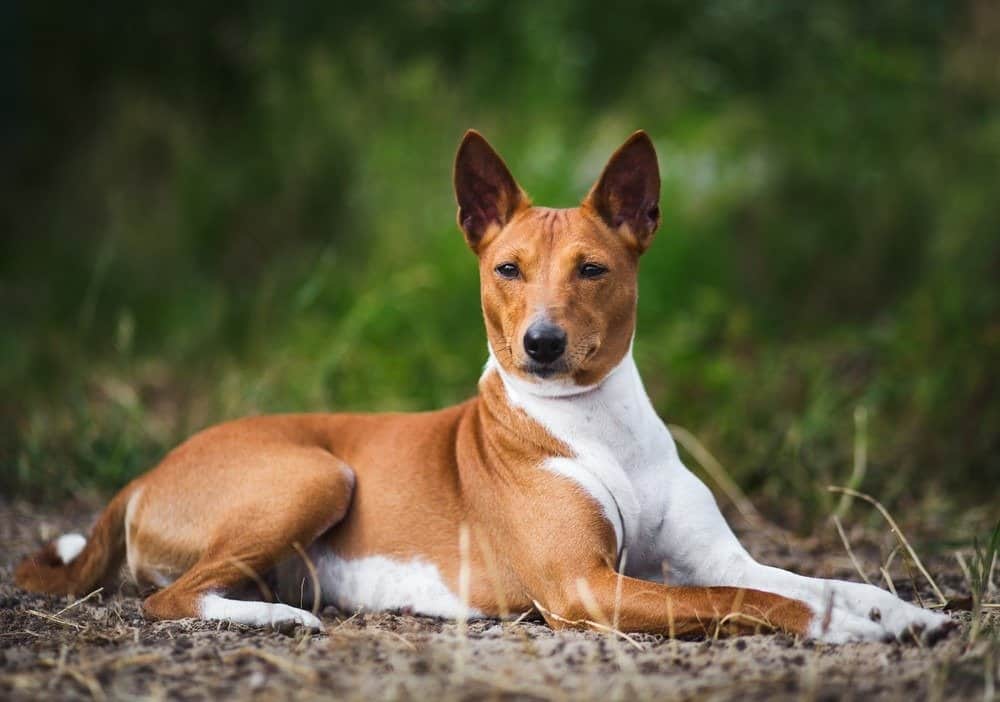Basenji Dog Pictures
View all of our Basenji Dog pictures in the gallery.
Bred to be hunting dogs in central Africa, Basenjis are believed to be one of the first domesticated dogs. The name “Basenji” means dog of the bush – referring to the African bush of their origin. These unusual, graceful, canines are medium-sized with shiny coats and curly tails. Their foreheads are cute and wrinkly and their eyes are uniquely almond-shaped.
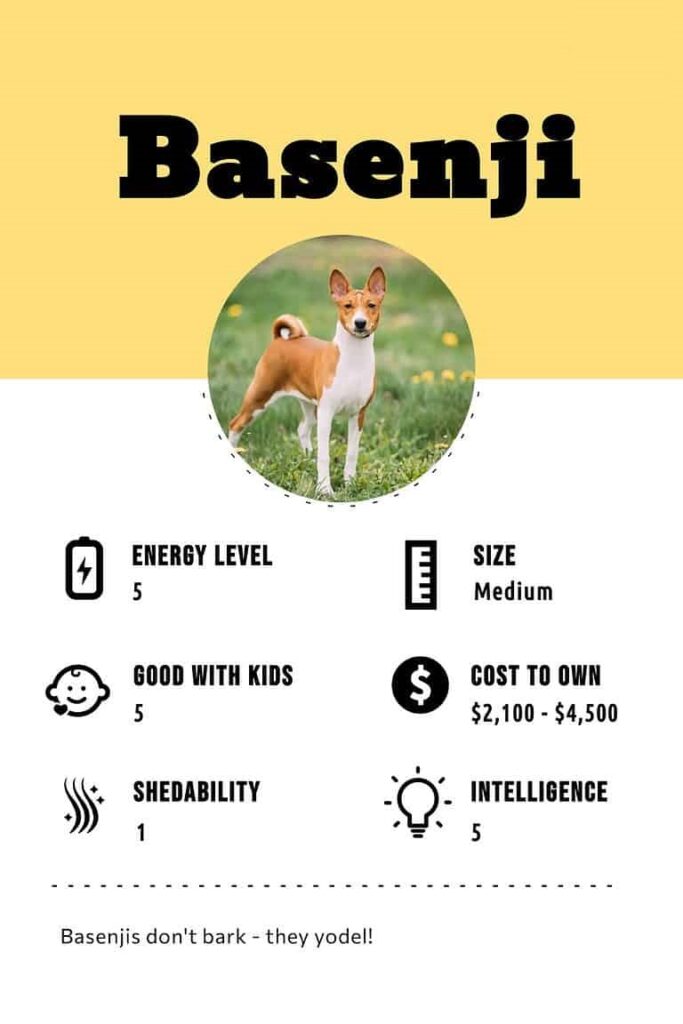
They are known as “barkless” dogs, but they aren’t exactly quiet either. Instead, they express themselves through various noises, like yodeling. In fact, these dogs can be quite vocal, ensuring that their owner always knows what is on their mind. They are known as a “cult” breed and are usually small in numbers. Basenji are considered to be hypoallergenic which means that they do not shed at all, due to their breeding.
3 Pros and Cons of Owning Basenji Dogs
Evolution
Most often cited as the inspiration for the image of Anubus, (along with the jackal and greyhound) a principal Egyptian God of the dead, Basenjis have been around for quite a long time. As a matter of fact, the Dingo and Basenji are both considered to be basal members of the dog clade. The Basenji is still a favorite hunting dog of tribesmen in the African congo, where it was, perhaps, the first dog to be domesticated by humans. Its DNA shows it to be a very old breed at the base of the dog family tree.
Size and Weight
Basenjis are medium-sized dogs. The male Basenjis are about 17 inches tall while the females are about 16 inches tall. Males and females are about the same sizes – the male Basenji dogs weigh about 24 pounds while the female ones weigh around 22 pounds.
Common Health Issues
Though Basenjis are bred to be a hypoallergenic and defensive dog, their DNA puts them at risk for many conditions. Hip dysplasia, which occurs when the hip muscles don’t form properly, is one of the most common issues. However, this is a common issue in dogs with longer legs.
Basenji dogs have a history of corneal dystrophy, which is an eye disease that occurs when too much fluid goes into the cornea. Admittedly, it is rare that this issue will arise, but it can be rather severe in Basenji puppies if both the male and female parents have it.
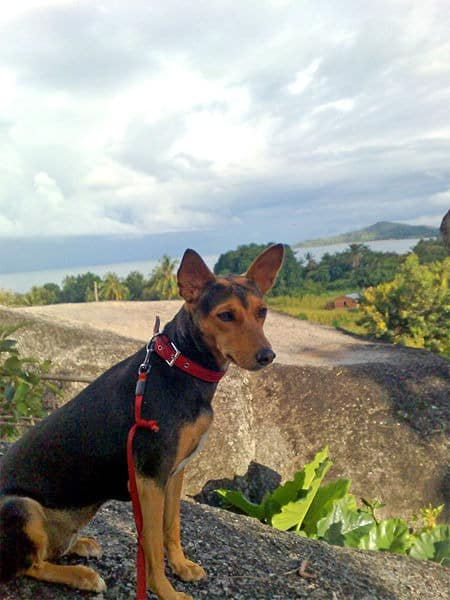
Patellar luxation may also occur in Basenjis. This condition causes the kneecaps of the dog to move from where they are meant to be. A big sign that the dog is going through this problem is if they start hopping for a few strides, holding one of its back legs off of the ground.
Some of the other diseases that these dogs suffer from include progressive retinal atrophy (degeneration in the retina), enteropathy (inflammation in the bowels that reduces protein absorption), and Fanconi syndrome (the inability of the kidneys to use water, causing frequent urination).
Therefore, the health issues that the Basenji dogs face include:
- Hip dysplasia
- Corneal dystrophy
- Patellar luxation
- Progressive retinal atrophy
- Basenji enteropathy
- Fanconi syndrome
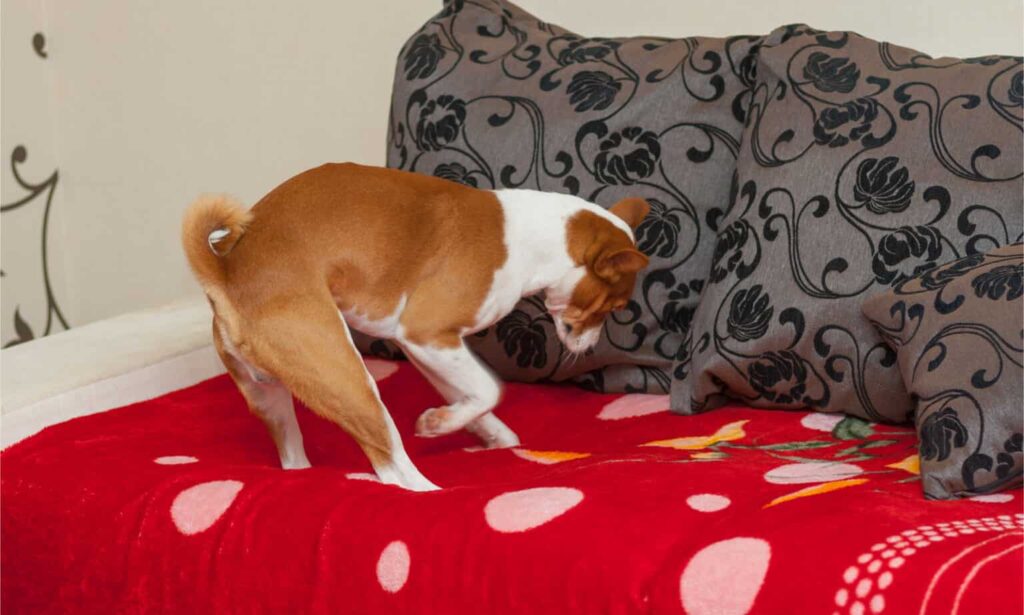
Temperament
These dogs have a history of being relatively reserved in nature. They are clever and inquisitive and also known to be very stubborn. These dogs are intelligent and strong decision-makers.
They can be nice to other dogs but may get aggressive towards strangers and also other dogs of the same breed. Basenjis do not bark much and are known to make a mix of other sounds as an expression of communication.
Basenji dogs might have destructive behaviors when left alone for a long time at a stretch.
How to Take Care of a Basenji Dog
In order to own a Basenji dog, you would want and need to know how to properly take care of it. The dog was specially bred for individuals that want a more sinus-friendly pup, but it also comes with some special needs. Here are some things that you should know about the breed:
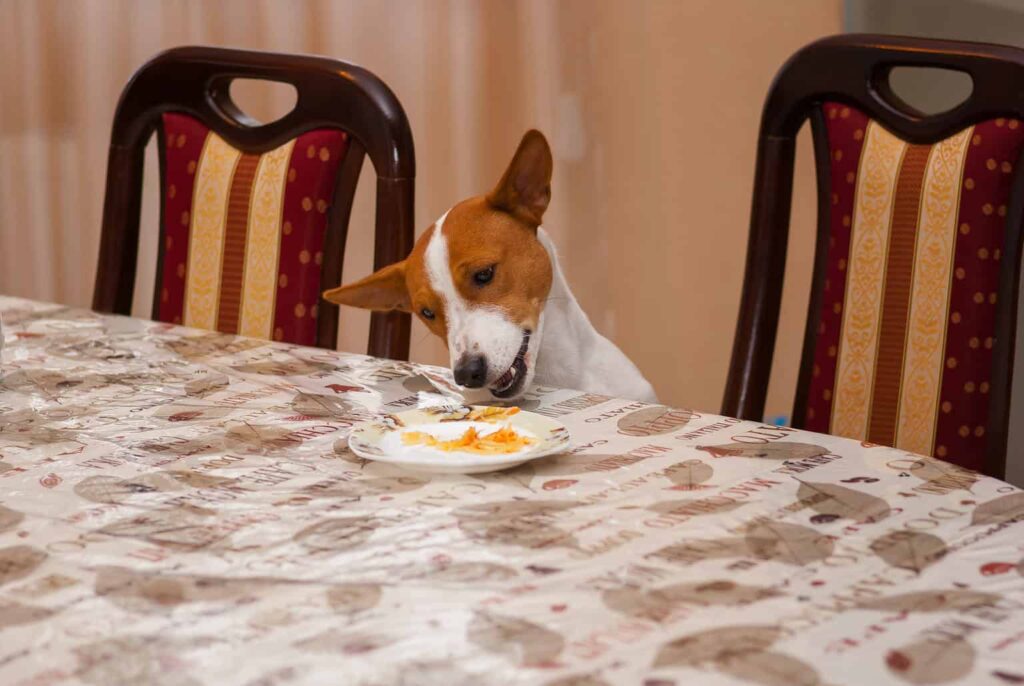
The Best Dog Food for Basenjis
Basenji dogs should ideally have meat as the core ingredient in their diet. These dogs are not known to be lovers of dry food. You could also add some raw vegetables to the food for your Basenji dogs or canned pumpkin works fine too.
If you want to cook vegetables, blanching and pureeing them is best. Avoid pork at all costs and provide variations from day to day to ensure that they have broad nutrition that keeps them healthy.
When dogs like Basenjis exhibit kidney problems, some vets steer owners towards low-phosphorus dog food, so get in touch with your vet about your dog’s kidney health and the ideal food.
However, for relatively healthy dogs, A-Z Animals’ recommendation for the best Basenji dog food is Stella & Chewy’s Wild Red Dry Dog Food Raw Blend High Protein Wholesome Grains Prairie Recipe.
There’s real chicken and other natural sources of protein, calcium, and glucosamine for healthy joints. Pumpkin adds beta-carotene to support your Basenji’s eyesight. Plentiful probiotics make this food easily digestible since this breed is prone to enteropathy, which affects the intestine.
Basenji dogs do not need a lot of grooming. They are tidy and like to keep themselves very clean. They only need to be bathed every four to six months.
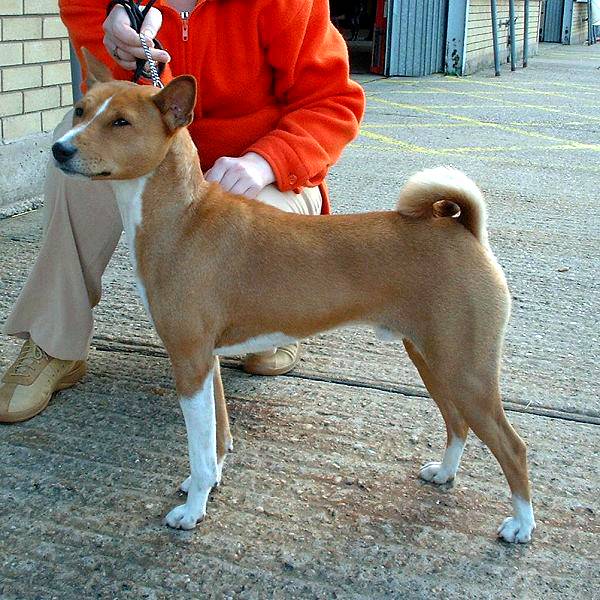
Training
This dog breed is highly intelligent which means that these dogs are quick at picking up commands. However, it could be difficult to obedience train your Basenji dog, but they can learn with a lot of dedication and hard work.
These dogs always want to please their owner, however, what would make the training easier would be to somehow make your Basenji dog believe that every task was his or her idea. They don’t like to be bossed around.
Exercise
Basenji dogs are very energetic and require a lot of physical activity each day. However, they are good climbers, so if you want your dog to remain inside an area, you should have tall and strong fencing around it. Swimming is not an option for them as they do not like being around water at all.

Puppies
Basenji puppies eat the same food as adults except for the fact that they eat more often since their small stomachs cannot digest a lot of food at once. They are also easier to train and would develop habits much more quickly, so it is better to start training these dogs as young as possible.
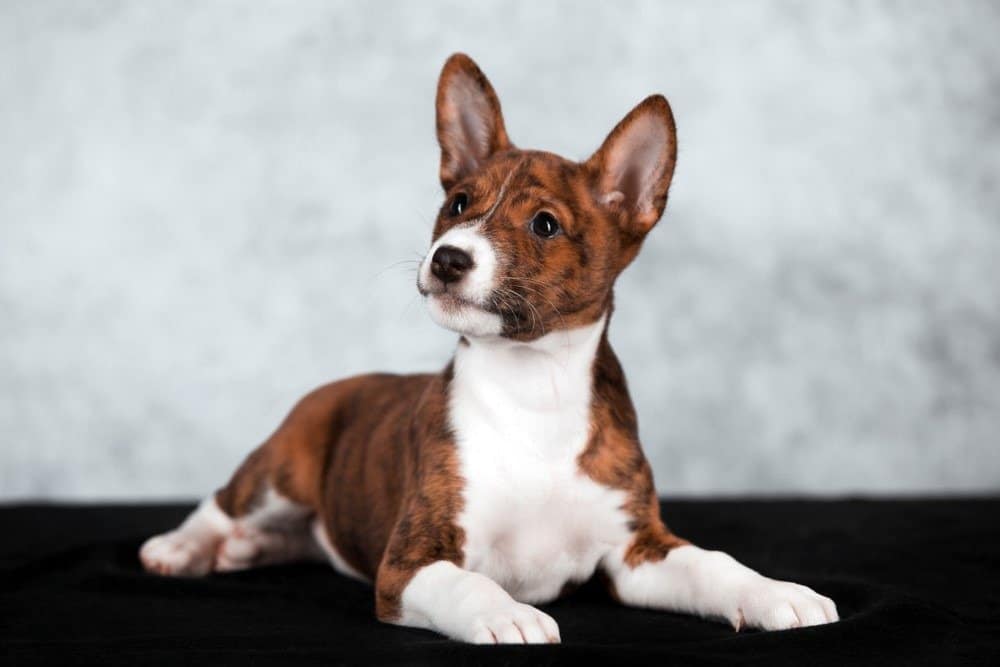
Basenji Dog and Children
This breed is affectionate and energetic and is very playful, especially with the children in the family. These dogs are safe with children, offering protection when strangers are around. Though they experience some separation anxiety, they are loyal companions to their families.
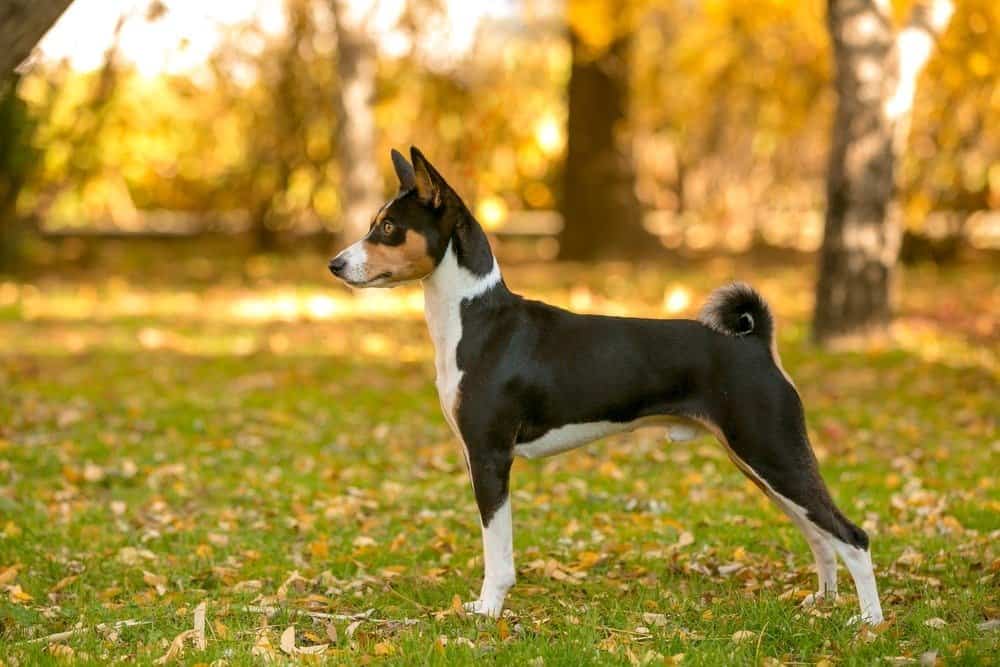
Famous Basenji Dogs
Basenji dogs have been owned by several famous people in the past. Both the queen of the Netherlands and the king of Thailand owned Basenji dogs. Several TV stars also have owned these dogs, like Kelsey Grammar.
Apart from their owners, Basenjis are famous in their own right. Animated movies and television shows seem to adore this type of dog. They have appeared in episodes of The Wild Thornberrys and Pound Puppies, and films like Soulmate and Tales of Halloween. Though the footage didn’t make the cut, Basenjis made an appearance in Ace Ventura: Pet Detective.
These dogs are even in books. Ever read Goodbye, My Lady by James H. Street? The main character that the book is named for is a female Basenji, and it eventually became a movie with Sidney Poitier and Brandon de Wilde. In fact, Brandon de Wilde even kept the dog when filming was over.
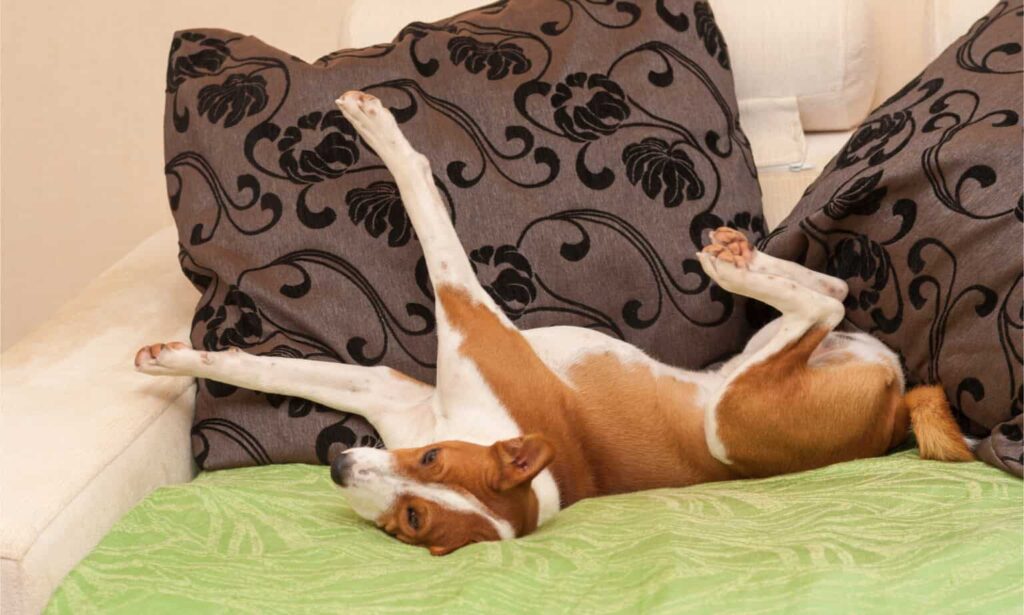
Dogs Similar to Basenji Dogs
As strong and caring as Basenjis can be, they aren’t the right match for everyone. Here are some dogs that are similar to the Basenji dog, to help make it a little easier to make a choice.
- Harrier: These dogs are great with children and are cheerful, tolerant, and affectionate. Harriers are often found in the United Kingdom, and their coat is a much thicker texture than a Basenji’s dog. However, if you can take the shedding, this hound is quite likable.
- Beagles: These dogs are loving and affectionate and make everyone fall in love with them. Sometimes found as a mix with the Harrier, the beagle is incredibly social, though this quality makes it hard for them to be a good watchdog.
- American Fox Hound: This hound is also known to be loyal and affectionate. However, like many other hound breeds, it can also turn out to be stubborn and aggressive in some cases. Much like the Basenji, it barely sheds.
Popular Names for Basenji Dogs
Here are a few popular names for Basenji dogs:
- Simba
- Dash
- Ivy
- Peanut
- Nipper
Lisha Pace
After a career of working to provide opportunities for local communities to experience and create art, I am enjoying having time to write about two of my favorite things – nature and animals. Half of my life is spent outdoors, usually with my husband and sweet little fourteen year old dog. We love to take walks by the lake and take photos of the animals we meet including: otters, ospreys, Canadian geese, ducks and nesting bald eagles. I also enjoy reading, discovering books to add to my library, collecting and playing vinyl, and listening to my son’s music.
